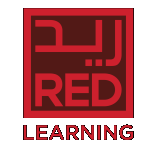Human resource management (HRM) professionals benefit from a multidisciplinary approach, drawing on various essential sciences to effectively manage personnel within organizations. These sciences include psychology, organizational behaviour, sociology, economics, statistics and data analysis, business administration and management, ethics and legal studies, technology and information systems, and communication.
Let’s delve deeper into each essential science for human resource management (HRM) professionals, providing examples to illustrate their relevance:
HRM is a multifaceted discipline that draws upon insights from various essential sciences to inform decision-making and strategy development. Understanding these sciences is essential for HR professionals to navigate complex organizational challenges and foster a productive and inclusive work environment. Let’s explore how each essential science contributes to effective HR management:
01. Psychology:
Psychology provides valuable insights into human behaviour, motivation, and well-being. HR professionals who understand psychological principles can implement strategies to boost employee morale, enhance team dynamics, and promote individual growth and development.
02. Organizational Behaviour:
Organizational behaviour delves into the dynamics of human behaviour within organizations. By applying insights from organizational behaviour, HR professionals can address issues such as low employee engagement levels, ineffective leadership, and communication barriers, thereby fostering a positive and collaborative work culture.
03. Sociology:
Sociology offers perspectives on social structures, diversity, and inequality. HR professionals can leverage sociological insights to promote inclusivity, address discrimination, and create a workplace culture that values diversity and equity.
04. Economics:
Economic principles guide decisions related to resource allocation, compensation, and workforce planning. HR professionals who understand economic principles can optimize labour costs, enhance productivity, and support organizational growth and sustainability.
5. Statistics and Data Analysis:
Data-driven decision-making is essential in HR management. By analyzing employee performance metrics and HR analytics, HR professionals can assess the effectiveness of HR initiatives, identify trends, and make informed decisions to drive organizational success.
06. Business Administration and Management:
Business fundamentals are integral to aligning HR strategies with organizational objectives. HR professionals who possess business acumen can develop strategic HR plans, optimize operational processes, and contribute to overall business success.
07. Ethics and Legal Studies:
Ethical considerations and legal compliance are paramount in HR management. HR professionals must navigate complex employment laws and ethical dilemmas to ensure fair treatment of employees and mitigate legal risks for the organization.
08. Technology and Information Systems:
HR technology is transforming HR management practices. HR professionals who are proficient in technology and information systems can streamline HR processes, enhance data management, and leverage analytics to inform decision-making and strategy development.
09. Communication:
Effective communication is essential for fostering collaboration, resolving conflicts, and building relationships in the workplace. HR professionals who possess strong communication skills can facilitate dialogue, inspire engagement, and cultivate a positive organizational culture.
10. Recommended Certifications for HR Professionals
To enhance their expertise and credibility in the field of HR management, professionals can pursue relevant certifications that align with their areas of interest and expertise. Here are recommended certifications that integrate insights from essential sciences:
Certified Professional in Talent Development (CPTD): This certification offered by the Association for Talent Development (ATD) covers various aspects of talent development, including employee motivation, learning theory, and performance improvement, drawing on principles of psychology and organizational behaviour.
Certified Behavior Analyst (CBA): The Certified Behavior Analyst certification focuses on applying behavioural principles in organizational settings, addressing issues such as employee engagement and team dynamics informed by organizational behaviour principles.
Certified Diversity Professional (CDP): Offered by the Institute for Diversity Certification, this certification provides training in diversity management and cultural competence, integrating sociological insights into diversity and inclusion practices.
Certified Compensation Professional (CCP): The Certified Compensation Professional certification offered by WorldatWork covers topics such as compensation strategy and pay equity, grounded in economic principles related to labour markets and resource allocation.
Professional in Human Resources – California (PHRca): This Certifications are offered by the HR Certification Institute (HRCI) includes a focus on statistical analysis and data interpretation, particularly in the context of HR metrics and analytics.
Project Management Professional (PMP): Offered by the Project Management Institute (PMI), the PMP certification equips HR professionals with project management skills essential for aligning HR strategies with organizational objectives and managing strategic initiatives.
Professional in Human Resources (PHR): Also offered by HRCI, the PHR certification includes a focus on employment law and ethical considerations in HR practices, providing HR professionals with the knowledge and skills to navigate legal and ethical challenges in the workplace.
Certifications:
Associate Professional in Human Resources International – aPHRi™
Professional in Human Resources (International) – PHRi™
Senior Professional in Human Resources International (SPHRi)™
Certified Information Systems Auditor (CISA): Offered by ISACA, the CISA certification focuses on information systems auditing and control, integrating technology and information systems expertise for HRIS implementation and data security.
Certified Professional in Learning and Performance (CPLP): Offered by ATD, the CPLP certification covers communication skills, coaching, and interpersonal effectiveness, providing HR professionals with tools to facilitate constructive dialogue and resolve conflicts effectively.
Conclusion
By integrating insights from essential sciences and obtaining relevant certifications, HR professionals can enhance their effectiveness in managing personnel and driving organizational success. By understanding the principles of psychology, organizational behaviour, sociology, economics, statistics, business administration, ethics, technology, and communication, HR professionals can navigate complex challenges, foster inclusive workplaces, and contribute to the long-term success of their organizations.




